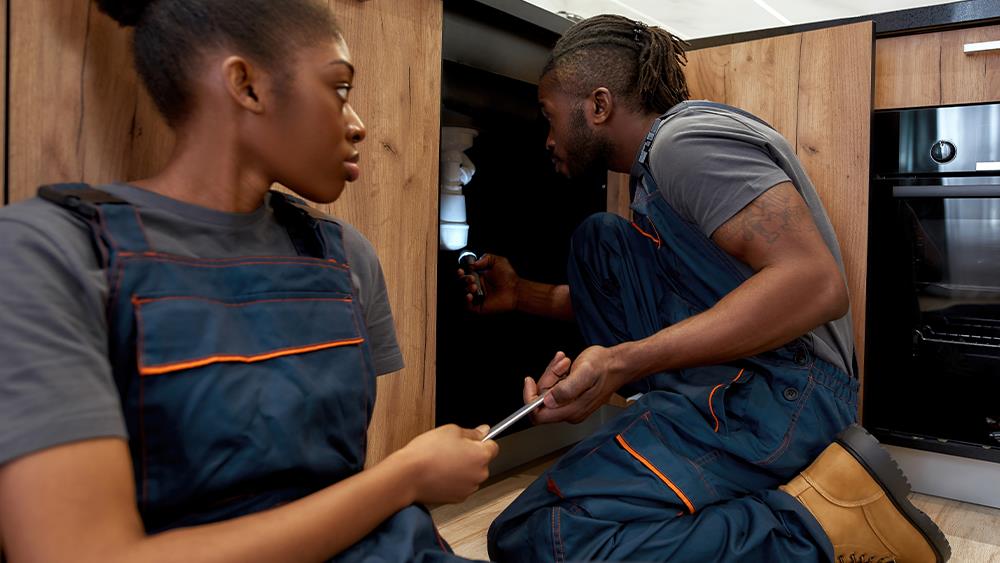

With the UK requiring a million new tradespeople to keep up with demand over the next decade, Magnet Trade wanted to highlight the importance of closing the gender pay gap as the demand for women in the self-employed trade industry increases.
The analysis found that plumbers have the second highest gender pay gap. Plumbers have one of the highest average trade salaries, earning on average £53,824 a year.
However the pay gap between genders is also very high, with females earning £18.10 compared to males £25.88 an hour; a difference of £7.78 an hour. This equates to a loss of over £16,182 a year for women in the plumbing trade compared to their male counterparts.
Top ten self-employed trades with the largest gender pay gaps
|
Ranking |
Trade |
Male hourly rates |
Female hourly rates |
Hourly gender pay gap |
|
1 |
Electrician |
£26.51 |
£18.54 |
£7.97 |
|
2 |
Plumbing |
£25.88 |
£18.10 |
£7.78 |
|
3 |
Joinery |
£25.73 |
£17.99 |
£7.74 |
|
4 |
Insulation |
£24.12 |
£16.86 |
£7.25 |
|
5 |
General construction |
£23.65 |
£16.54 |
£7.11 |
|
6 |
Bricklaying |
£23.37 |
£16.34 |
£7.03 |
|
7 |
Painter and decorator |
£23.31 |
£16.30 |
£7.01 |
|
8 |
Steel and timber frame erection |
£22.19 |
£15.52 |
£6.67 |
|
9 |
Surfacing contractors |
£21.85 |
£15.28 |
£6.57 |
|
10 |
Specialist trades |
£21.60 |
£15.10 |
£6.49 |
Magnet Trade’s data found that, with women earning 43% less than men in self-employed jobs, estimates show that, for trade jobs, men charge £7 more an hour on average than women. In terms of the hourly rate, on average, this is £23 for self-employed men compared to £16 for women.
Across all industry trades, men earn an average of £700,000 more across a working lifetime compared to women.
When looking at just one year, men earn £14,000 more compared to women in the self-employed trade industry. Therefore, self-employed tradeswomen would have to work five extra months per year to match a man’s salary across trade roles.
If you'd like to keep up-to-date with the latest developments in the heating and plumbing industry, why not subscribe to our weekly newsletters? Just click the button below and you can ensure all the latest industry news and new product information lands in your inbox every week.